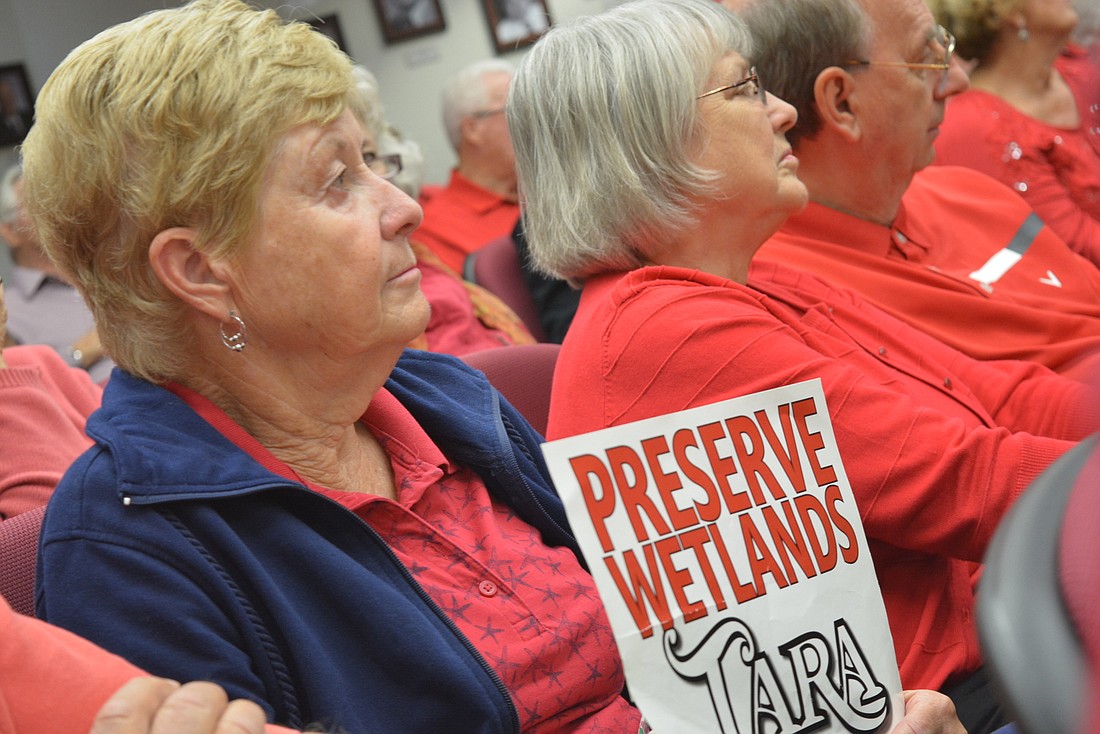- May 6, 2025
-
-
Loading

Loading

An 11-year battle between Tara developer Lake Lincoln and Manatee County has been settled for $3.6 million.
On June 6, the commission unanimously agreed to pay the developer $3,634,868 to settle the property rights case originally filed in May 2012.
In return, Lake Lincoln will deed the 10.33-acre property in question, plus two additional wetland parcels that equal about 45 acres, over to the county. The 2022-2023 budget was amended to transfer funds from reserves to pay the settlement in full.
“A discussion has not been done. I can’t say for sure it will never be built on. There’s going to be new boards,” District Five Commissioner Vanessa Baugh said, “But hopefully, we can turn it into some sort of preserve, or something like that, where it’s not built on.”
The suit was initiated after two years of back and forth over about three acres of the 10.33-acre property on the southwest corner of State Road 70 and Tara Boulevard that Lake Lincoln wanted to use for commercial development.
After ruling the property could only be used for open space and conservation in 2011, commissioners tried to find middle ground between the developer and the residents by amending the maps to accommodate residential and residential support use in 2019. Residential support use allows for businesses such as daycare centers, whereas commercial use would’ve allowed for businesses such as a gas station.
Seven months after the maps were amended, attorneys for Lake Lincoln filed a modification to the lawsuit that included an appraisal provided by Durrance & Associates that estimated a $3.61 million loss in property value and revenue dating back to when the lawsuit was first filed.
With the property tied up in litigation and unable to be developed, it was effectively off the market. Lawyers for Lake Lincoln argued that the decision to not allow commercial development went against the Comprehensive Plan and that the county “inordinately burdened the land,” which landowners are shielded against under the Bert J. Harris Private Property Rights Protection Act.
As far as the 2019 decision to allow residential and residential support use, lawyers said it still lowered the value of the property in comparison to the commercial use allowed for in the Comprehensive Plan.
Tara residents held their ground, too. The rights of citizens to intervene became a big issue in 2017 when one of the proposed settlement offers approved up to 19,500 square-feet of commercial development. Residents of Tara signed a petition and the associations representing them hired an attorney to have a say in the matter.
Attorney Robert Lincoln argued that the settlement violated county development codes and wasn’t in the best interest of the public. Tara proposed the alternative option of amending the maps.
Judge Lon Arend ruled residents had a right to participate in the proceedings and sent the settlement back to the commission for another vote. The same agreement from Lake Lincoln was rejected 4-3 on the revote, but Tara’s alternative proposal was approved.
In 2010, Lake Lincoln had already agreed to only use the property for residential and residential support uses. But by 2019, attorney Patricia Petruff was arguing that the developer wanted the zoning to match the “correct use” and the “character of the area.”
“The Board of County Commissioners, when we vote ‘no,’ we have a reason, and I think it should be honored, and that’s not something that is done nowadays. It seems like almost every time we turn down a project, the developer sues, and they win,” Baugh said. “The community gets upset because we approve things, but at the same time, Manatee County citizens need to understand that when we lose a case such as this, it’s taxpayer money that pays that fine.”